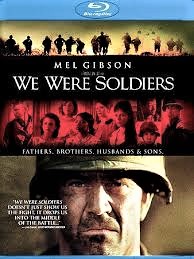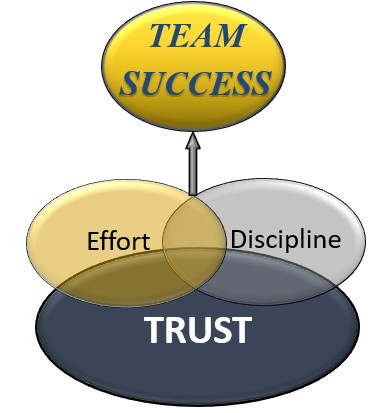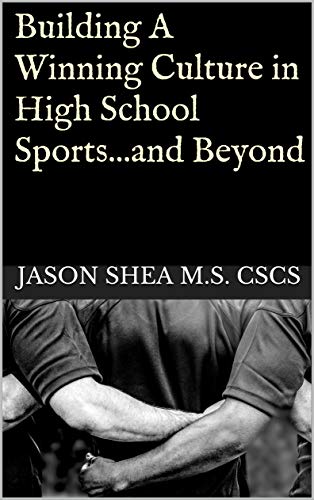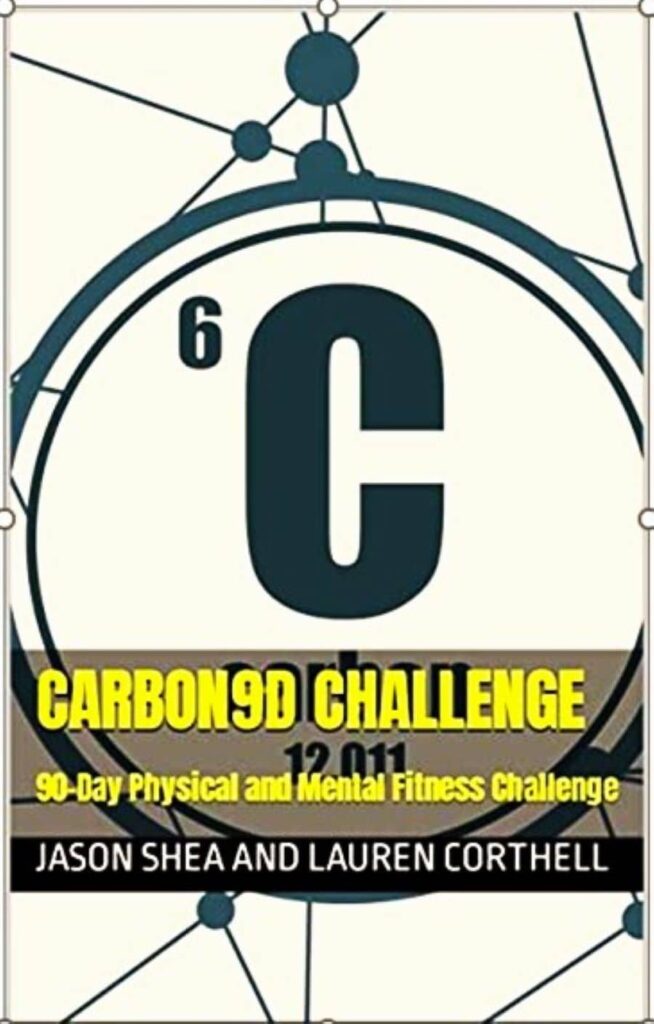
In the United States Army, a Colonel, or 06, can command a brigade of up to 5,000 soldiers on the ground. This command can be on the ground in life and death situations or on a base in preparation for those situations. Think of the real life Colonel that Mel Gibson portrayed in the Vietnam war time movie We Were Soldiers, Colonel Hal Moore. If you have not watched the movie, we highly recommend watching it, as the leadership and leadership lessons exhibited by Moore are some of the best on film.
In the Battle of Ia Drang Moore and the units he commanded, held off the North Vietnamese Army against overwhelming odds for three straight days. They eventually drove the NVA back, securing the strategic helicopter landing zone, LZ-Xray.
Think for a moment, what it would be like to have a person with that level of leadership under life and death pressure situations building and leading a high school sports program from scratch? The teamwork and leadership lessons must be similar. The following is an interview with a former Colonel who was in charge of up to 3,000 soldiers on the ground in Iraq.
Humble Beginnings
The Colonel reflects “In high school I played high football, hockey, and baseball. Couldn’t hit a beach ball if you threw it at me. I wanted to go and play hockey in college, but I got injured my senior year. I ended up at a local college. I played juniors and men’s league hockey.
That is how ended up in military. I had no money going into my sophomore year of college. So, I joined the National Guard. I got commissioned at college, then served reserve time. I served 7 years of active duty time with my most recent deployments including 15 months to Iraq in 2007-2008 leading surge operations.
My last full time active role was that of Commander down at one of our state’s military bases. I have been a platoon leader on up. There is no greater privilege than leading men. As a commander it is an honor for us to lead people. This is an extensive obligation as you are truly leading men and women. There is no greater responsibility than leading men and women in life and death situations.

I have always strived for command positions. A lot of people may say it came naturally to me, but I did learn it through the military. In hockey I was the captain of the team. Not because I was a good leader, but because I played hard and kept my mouth shut. I was not a captain in football.
Value based is strong leadership quality. The Army lives by set of values. When all else fails, we have our values to fall back on. When I look back to my high school days, the kids I looked up to, the leaders, had those same characteristics.
The attitude I had in sports was I was going to give 100 percent all the time. I wanted to beat everybody in wind sprints and not stop. I always gave 110 percent. I lost respect for people that did not try and give their best effort. I also always gave respect to the coaching staff and referees. As a young man it didn’t matter what the ref did, I would not disrespect.”
Effort is Absolutely Critical
“The military takes all these young kids and turn them into men and women. They aren’t looking for athletes. At the more elite schools they are looking for the kid that is going to try his hardest. The one who is not going to let the guy next to him down. The ultimate team is the military. One goal, singular focus.
You are developed to never give up on anything because of the guy to your left or right. This mindset is started in boot camp. They then train you as a leader. We take these lieutenants and mold them. There is no quit. If you have a mission, there is no quit until it is successful.
We are taking a huge populous and turning them in the right direction. We reward very well. You praise in public and counsel in public” , expresses the colonel.
We Train Leadership
The Colonel shares “There is formal schooling for leadership training. Leadership training is in every school you go through as an officer or non-commissioned officer. There is always something in there, whether it is subliminal or not, there is leadership training.
Then you apply it. It becomes an applied metric. Leadership reaction courses built around the dynamics of working together as a team. Back in basic we had a buddy run. You had to win with your buddy. One strong and one weak, and you had to win as one.”
Coaching a high school team
If he was hired as the coach of a high school team, the Colonel shares “I believe in a good assessment phase first to understand the details of any situation. First thing I would do is change the culture. A value based culture is a priority. Based on integrity, respect, and a team-based approach. Those guys next to you are your brothers. Everything you do is for them. People want to be a part of that team. Hard work pays off in that environment. If you work hard, you are going to play.

We would have one standard. You are only going to have so many good athletes, so we need a single standard: Hard work, discipline, how you carry yourself on and off the field. You are representing that team and that organization. If practice starts at 3pm, you are on the field at 245pm. We will work hard all the time. We will pay attention to the details.
I believe you are not molding athletes, you are molding young men. Many parents today want their kid to participate, play, and be the best they can be.
A lot of leadership I have learned in my life is watching bad leaders make bad decisions and learning what not to do. Intervention depends on what level you are at. Battalion commander has 4 under him/her, then platoon commander has 4. They are worried about 2 levels down.
You have leadership development plans, but always have to keep in mind that you are molding young leaders. If we are molding a young lieutenant to be a captain, I am going to be patient with him. As long as he is not doing anything severely wrong. I want to give him time to become a successful captain. We have a building block and plan to make our lieutenant into a good captain.”
Metrics
“Evaluations in which you meet with and council them on both positives and negatives. Brigade commander, colonel, battalion commanders should have it figured out by then. There is zero tolerance at that level of leadership. You either do the job right or we find somebody that will.
I have plenty of officers behind that one. If a guy is trying hard and working hard you will probably give him the benefit of the doubt. Only in elite schools do they use physical training as a punishment. At higher levels it is more about mission and competencies” shares the Colonel.
Entitlement
The Colonel expresses “It comes back to the standard of managing expectations. I believe in strong communication up front. Here are the expectations, you stay within this box, you are good, you go outside the box, then we have a problem. If you are super star quarterback and break this expectation, then you are not going to play.
You need to have a vision or a philosophy approach to it: when you are a brigade commander you have about 3k troops under you. You can affect all of them by the environment you create. Implement vision and philosophy papers. These need to be in the simplest form. What values do we care about most? You will need to keep it real simple.
I would not want to create a winning is everything environment. I believe winning is, you are there trying as hard as you can to win, while still wanting to have fun.

I would want athletes to know that they are not doing it for yourself. We would not allow them to break the value and be disrespectful.
We would then build a construct and set the conditions to give the team an opportunity to win. When you win, you exploit that and build off of that. How good did that feel to practice that hard and put forth best effort in a game and come out with a win? I would never build a team just to win. There is so much more to building up these young kids.
I hate losing more than I like winning. If the team is doing everything they are supposed to be doing and you set them up for success, the winning and losing takes a back seat. I could take 22 kids and improve a team. Just through the same approaches I learned by being a leader in the military. These approaches help in nearly every team environment.”
3 Pillars of Success
“Respect, professionalism and competency.
You need to be respectful toward the kids. In high school they are young, mature individuals; they are not in 5th and 6th grade. “You are a young man and I am going to treat you that way.”
You need to get the team to focus on the same goal. You cannot have your outliers saying “I am going to put up these individual statistics. We are going to work together as a team. We are going to police our own and do everything we can to get to the state championship this year. We will always reward the kid that plays hard.
Take the kids that shows up every day at practice and busts his ass. We would put him in and play him. This will create a positive environment where the rest of the team will see that their hard work and commitment to the vision pays off. This will also teach these kids the important things in life.
You can watch a high school team and know everything you need to know about that team within 20 minutes. A few years ago, at a high school hockey game I went to, one of the kids on the team cheap shotted a kid and the kid came out on a stretcher. The kid that did it, the minute he was out of the penalty box, he was back out on the ice playing. Everyone in the building knew he cheap shotted the guy. I would expect him to be on the end of the bench and apologize.
In the limited exposure I have had recently to high school sports, I think that the importance of molding young men and girls is gone. I think coaches dream of getting to the super 8 and going to Foxboro and playing in the State Championship game. I think that sometimes the coach’s vision is blurred in terms of the role they have and the role they play in these kids’ lives.
One of the good metrics to being a good leader is getting people to do things they don’t want to do. I’d find examples of success. Hard work pays off. But you cannot do it without hard work. If you are not working hard, you are not getting better. I would have the team police their own. You build the team concepts in which they are all in this together.
We would do team functions. We would do wind sprints as a team. I would depend on the captains to hold people accountable. In some respects, I would have the captains police” shares the Colonel.
Hold People Accountable
“Here is a Hockey story example. A kid didn’t pass the puck. The coach blows the whistle in practice and yells everybody off the ice except for you and the five of you. Tells the kid who didn’t pass to go and get a goal. He then tells the other five guys “don’t let him get past the blue line. I want him to see how hard it is without teammates.”

You are as strong as the weakest link. You start as a platoon, you end as a platoon. You have a buddy system. You do everything together. In basic, first thing in the morning your bed has to be perfect. If your buddy’s bed is not perfect, the drill sergeant comes in chews both of you out. Makes you do 20 pushups right next to him for not having his back.
Before you get up and do PT in the morning, you have to clean the barracks. You do this you do that, clean the floor, toilets; everybody has a function when you get up in the morning and fall out in formation. Just like in sports. The drill sergeant then inspects it. If the showers aren’t clean everybody has to do pushups as a collective group, as a team. It was the job of the team to get this done.
I think a lot of it stems from sports. When I was in high school, I was fortunate to see examples of good leadership. We never wore anything on our helmets, just a blue stripe. The captains had gone off and ordered the team emblem to be put on the helmets. The captains put the team emblem on all of the helmets overnight. We came back in and saw our team emblem on those helmets. This was an incredible motivator. Some of the guys also wanted to put stickers on their helmets and captains said no, as that was not a team thing.
I didn’t even think I was going to stay in the military. I did not have goal of becoming a colonel. By the time I became a captain I still had same obligation while raising a family. When I got to that decision point, I couldn’t leave it because of culture. The ability to affect and impact so many people. If you do a good job you can have a significant impact. I started looking at the military in different way. I was surprised when they made me an 06. I wanted to have an impact.
It was the positions. The opportunity to lead people was why. I knew I could lead people. I knew I could have an influence. I would have left if I couldn’t command. That is where the comradery is in those mission units” reflects the Colonel.
Innate Characteristics of Leaders
The Colonel shares “I think there is something in people. They just want to always do better. They just want to do something more. What they are doing just isn’t good enough. Whether they are quiet and humble or type A, they all have something that tells them they can do the job and they want to be the best. You can see that in people. Sometimes you get the diamonds in the rough that just pop out of nowhere and surprise you.
People can get a lot out of playing sports and being a part of things in high school. You look at the importance of sports, band, team comradery things; we should be building off of those things.
My younger brother wanted to play hockey. He was practicing one day, and the coach got mad at him and took his stick and threw it over the glass right in front of everybody. He was embarrassed and never played again. That was poor leadership, there was no lesson learned from that.You always remember the teachers that treat you with respect. The ones that don’t talk down to people. We put stock in teams and organizations. I am not going to put a person in this leadership position who has never had leadership training. Why would you hire a coach that has had minimal level of success leading people.”
Thx for reading!
For more on Building a Winning Culture in High School Sports and Beyond, be sure to check out our blog or pick up your copy of the book today!



